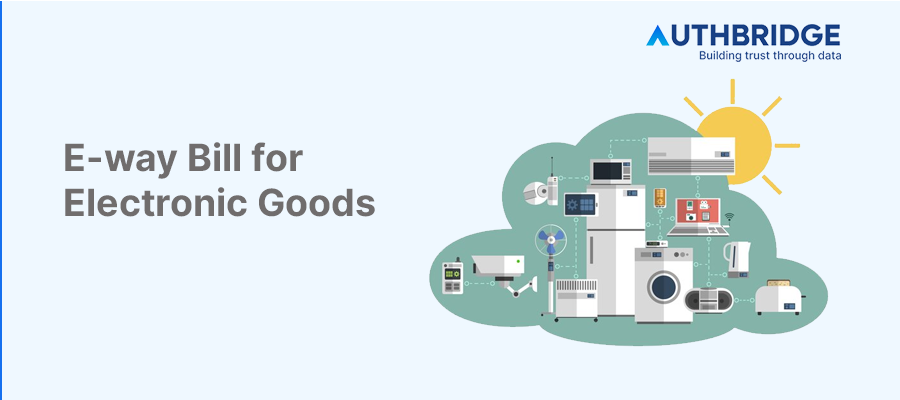A Comprehensive Guide

The Goods and Services Tax (GST) was introduced in India in 2017, replacing several previous taxes like service tax, excise duty, and VAT (Value-Added Tax). This comprehensive tax system aimed to unify the country's tax structure, making it simpler and more transparent. For electronic goods, which include a wide range of products from mobile phones to luxury electronic items, GST has been a significant change, affecting pricing, compliance, and logistics operations.
Impact on Electronic Goods
The implementation of GST has streamlined the tax structure for electronic goods, categorizing them into different tax slabs based on their type and usage. This has not only impacted the pricing of these goods but also influenced the overall market dynamics, including supply chain mechanisms and interstate transportation, which directly ties into the relevance of the E-way Bill system for these goods.
GST Rates on Electronic and Electrical Items
The GST framework categorizes electronic and electrical items into different tax slabs based on their utility and type. Understanding these rates is crucial for businesses and consumers alike, as it directly impacts pricing and compliance, especially when transporting these goods across state lines, necessitating an E-way Bill.
- Renewable Energy Devices: Taxed at 5% GST. This includes solar power systems, wind turbines, and biogas plants, emphasizing the government's support for sustainable energy solutions.
- Mobile Phones and Accessories: Subject to a 12% GST rate, reflecting a standardized approach to these ubiquitous devices.
- Transmission and Distribution Products: These are taxed at 18% GST, covering a broad range of products essential for the electrical infrastructure.
- Premium and Luxury Electronics: Fall under the highest slab of 28% GST, which includes items like high-end TVs and air conditioners.
Understanding the E-way Bill
What is an E-way Bill?
An E-way Bill is an electronic document required for the interstate and intrastate transportation of goods valued over ₹50,000. It's a crucial component of the GST system, ensuring goods are transported in compliance with tax regulations.
Importance for Electronic Goods Transportation
For electronic goods, which often have high value, the E-way Bill is particularly important. It ensures transparency and accountability in the movement of goods, helping to prevent tax evasion and ensuring proper tax collection.
E-way Bill Requirements for Electronic Goods
When is an E-way Bill Required?
An E-way Bill is mandatory for transporting any consignment of electronic goods exceeding the value of ₹50,000. This applies to both interstate and intrastate movements.
Documents Needed for E-way Bill Generation
To generate an E-way Bill, the transporter must have:
- Invoice/Bill of Supply/Challan related to the consignment.
- Transporter ID or Vehicle number if transported by road.
- Transporter ID, Transport document number, and date on the document if transported by rail, air, or ship.
Step-by-Step Guide to Generating an E-way Bill
Registration Process
- Register on the E-way Bill portal using your GSTIN.
- Fill in the required details and set up your account.
Generating the E-way Bill
- Log in to the E-way Bill portal.
- Click on 'Generate New' under the E-way Bill option.
- Enter the details of the consignment, including the transporter's information and the GSTIN of the recipient.
- Submit to generate the E-way Bill, which will provide a unique E-way Bill Number (EBN).
Updating Part B of the E-way Bill
Transporters must update Part B of the E-way Bill with vehicle details before the movement of goods. This can be done using the EBN provided during the generation of the E-way Bill.
Compliance and Penalties
Compliance Requirements
Businesses must ensure that an E-way Bill accompanies the transportation of electronic goods when required. Failing to comply can lead to the seizure of goods and tax penalties.
Penalties for Non-compliance
Non-compliance with E-way Bill requirements can lead to a penalty of ₹10,000 or the equivalent of the tax sought to be evaded, whichever is higher.
Impact of GST and E-way Bill on the Electronics Industry
The introduction of GST and the E-way Bill system has streamlined tax compliance and logistics operations in the electronics industry. It has reduced the cascading effect of taxes, making electronic goods more affordable to the end consumer. However, the industry also faces challenges, such as adapting to the new compliance requirements and the increased administrative burden of generating E-way Bills for transportation.
Conclusion and Future Outlook
The GST and E-way Bill system have brought significant changes to the electronics industry, impacting everything from pricing to logistics. While there are challenges, the overall impact is positive, promoting transparency and efficiency in the supply chain. As the industry adapts, we can expect further refinements to the system, making it more streamlined and less burdensome for all stakeholders involved.
Data Table: GST Rates for Electronic Goods
Category | GST Rate | Examples |
Renewable Energy Devices | 5% | Solar panels, Wind turbines |
Mobile Phones & Accessories | 12% | Smartphones, Chargers |
Transmission & Distribution Products | 18% | Electric cables, Switches |
Premium and Luxury Electronics | 28% | High-end TVs, Air conditioners |
This table provides a quick reference to the GST rates applicable to various categories of electronic goods, highlighting the government's tax structure for these items.
The implementation of GST and the E-way Bill system represents a significant shift towards a more integrated and transparent tax regime in India, especially for the electronics industry. As businesses and consumers navigate these changes, staying informed and compliant is key to leveraging the benefits of this new system.
Category

Abhinandan Banerjee
(Associate Manager - Marketing)
Abhinandan is a dynamic Product and Content Marketer, boasting over seven years of experience in crafting impactful marketing strategies across diverse environments. Known for his strategic insights, he propels digital growth and boosts brand visibility by transforming complex ideas into compelling content that inspires action.



